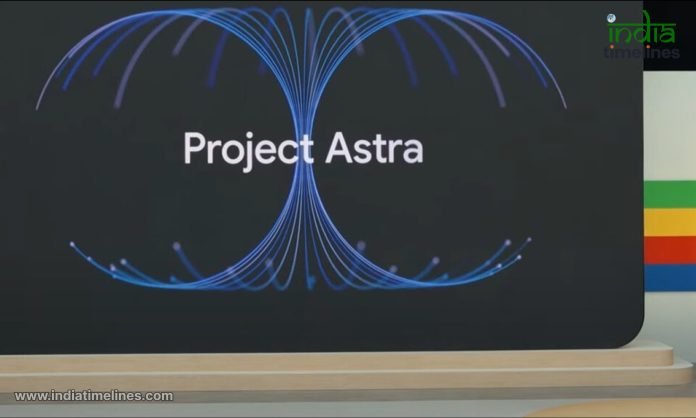
Artificial intelligence has seamlessly woven itself into the fabric of our daily lives, especially through AI assistants. These digital companions have revolutionized how we interact with technology, making tasks more manageable and our lives more efficient. One of the most exciting developments in this realm is Google’s Project Astra, which promises to elevate the AI assistant experience to unprecedented heights. But what exactly is Project Astra, and how does it plan to transform our interactions with AI?
Visit Us For More Information: Indiatimelines
What is Google’s Project Astra?
Definition and Objectives
Google’s Project Astra is an ambitious initiative aimed at creating the next generation of AI assistants. Unlike its predecessors, Project Astra is designed to offer a more intuitive, personalized, and seamless interaction experience. The primary objective is to integrate AI more deeply into various aspects of daily life, enhancing productivity, convenience, and accessibility.
Key Features of Project Astra
Project Astra boasts several groundbreaking features, such as advanced natural language processing (NLP), contextual understanding, and multimodal interactions. These capabilities allow it to understand and respond to user needs more accurately and naturally, making interactions more human-like and efficient.
The Evolution of AI Assistants
From Basic Chatbots to Advanced AI
The journey of AI assistants began with simple chatbots capable of handling basic queries. Over time, technological advancements have transformed these rudimentary programs into sophisticated AI systems that can perform complex tasks, understand natural language, and learn from user interactions.
Milestones in AI Assistant Development
Key milestones include the introduction of voice recognition, machine learning algorithms, and the integration of AI with various services and devices. Each milestone has brought us closer to the highly capable AI assistants we have today.
Technological Foundation of Project Astra
AI and Machine Learning Technologies Used
At the core of Project Astra are cutting-edge AI and machine learning technologies. These technologies enable the system to learn from vast amounts of data, improving its accuracy and capabilities over time.
Natural Language Processing Advancements
One of the standout features of Project Astra is its advanced NLP capabilities. This allows the AI to understand and respond to human language with a high degree of accuracy, making interactions more natural and intuitive.
Integration with Other Google Services
Project Astra is designed to integrate seamlessly with other Google services, such as Google Search, Google Maps, and Google Workspace. This integration enhances its functionality and allows users to perform a wide range of tasks without switching between different applications.
Key Features of Project Astra
Personalized User Experience
Project Astra leverages AI to provide a highly personalized user experience. It learns from user interactions, preferences, and habits to offer tailored suggestions and assistance.
Contextual Understanding
One of the most significant advancements in Project Astra is its ability to understand context. This means it can comprehend not just the words spoken but the intent and nuances behind them, leading to more accurate and helpful responses.
Multimodal Interactions
Project Astra supports multimodal interactions, allowing users to interact with it using voice, text, and even visual inputs. This flexibility ensures that users can communicate in the way that is most convenient for them.
User Privacy and Security
Data Encryption and Privacy Measures
Google has implemented robust data encryption and privacy measures to ensure that user data is protected. Project Astra uses advanced encryption techniques to secure data both in transit and at rest.
User Control Over Data
Users have full control over their data with Project Astra. They can manage what information is stored and how it is used, ensuring transparency and trust.
Applications of Project Astra
In Personal Life
In personal life, Project Astra can assist with daily tasks such as setting reminders, managing schedules, and providing personalized recommendations for activities and content.
In Professional Settings
In the workplace, Project Astra can help streamline workflows, manage meetings, and enhance productivity by automating routine tasks and providing intelligent insights.
In Education
For educators and students, Project Astra offers personalized learning experiences, helps with research, and can even grade assignments, making education more efficient and tailored to individual needs.
Project Astra in Smart Homes
Integration with Smart Home Devices
Project Astra seamlessly integrates with a wide range of smart home devices, enabling users to control their environment with simple voice commands. From adjusting the thermostat to managing security systems, Project Astra enhances home automation.
Enhancing Home Automation
With Project Astra, home automation becomes more intuitive and responsive. It can learn user preferences and optimize the home environment accordingly, making everyday life more comfortable and convenient.
Future of Work with Project Astra
Streamlining Workflows
In professional settings, Project Astra can significantly streamline workflows. It can manage schedules, automate routine tasks, and provide insights that help teams work more efficiently.
Enhancing Productivity
By taking over mundane tasks and providing intelligent assistance, Project Astra allows professionals to focus on more strategic and creative aspects of their work, thereby enhancing overall productivity.
Project Astra in Healthcare
AI in Diagnostics and Patient Care
In the healthcare sector, Project Astra has the potential to revolutionize diagnostics and patient care. It can assist doctors by analyzing medical data, suggesting diagnoses, and even monitoring patient health in real time.
Administrative Applications
Beyond patient care, Project Astra can handle various administrative tasks in healthcare settings, such as managing patient records, scheduling appointments, and handling billing processes.
Education Revolution with Project Astra
Personalized Learning Experiences
Project Astra can transform education by providing personalized learning experiences. It can adapt to the learning pace and style of each student, offering customized content and support.
AI in Administrative Tasks
In educational institutions, Project Astra can take on administrative tasks such as scheduling, grading, and managing student records, allowing educators to focus more on teaching.
Project Astra and Accessibility
Improving Accessibility for Differently-Abled Users
One of the key strengths of Project Astra is its ability to improve accessibility. It offers features such as voice control, speech-to-text, and text-to-speech, making technology more accessible to differently-abled users.
Language and Translation Services
Project Astra includes robust language and translation services, breaking down language barriers and making information accessible to a global audience.
Challenges and Ethical Considerations
Ethical Use of AI
As with any AI technology, ethical considerations are paramount. Google is committed to ensuring that Project Astra is used ethically, avoiding biases, and respecting user privacy.
Addressing Biases in AI
Addressing biases in AI is a significant challenge. Google is continually working to refine its algorithms and data sets to minimize biases and ensure fair and equitable use of Project Astra.
The Competitive Landscape
Comparison with Other AI Assistants
Project Astra stands out in a crowded field of AI assistants due to its advanced features, seamless integration with Google services, and robust privacy measures. However, it faces competition from other tech giants like Amazon’s Alexa, Apple’s Siri, and Microsoft’s Cortana.
Google’s Unique Approach
Google’s unique approach to AI, focusing on personalization, contextual understanding, and multimodal interactions, gives Project Astra a competitive edge. Its deep integration with Google’s ecosystem also enhances its utility and appeal.
Conclusion
Project Astra represents the future of AI assistants, offering unparalleled capabilities and integration. From personal use to professional applications, it promises to make our interactions with technology more intuitive, efficient, and personalized. As AI continues to evolve, Project Astra is poised to lead the way, shaping the future of how we engage with the digital world.
FAQs
1. What is Project Astra?
Project Astra is Google’s next-generation AI assistant designed to offer a more intuitive, personalized, and seamless interaction experience.
2. How does Project Astra protect user privacy?
Project Astra uses advanced data encryption techniques and gives users full control over their data, ensuring robust privacy and security.
3. Can Project Astra be used in healthcare?
Yes, Project Astra can assist in healthcare by aiding diagnostics, monitoring patient health, and handling administrative tasks.
4. What sets Project Astra apart from other AI assistants?
Project Astra stands out due to its advanced NLP capabilities, contextual understanding, multimodal interactions, and seamless integration with Google services.
5. What are the main challenges facing Project Astra?
The main challenges include addressing ethical considerations, minimizing biases in AI, and ensuring user privacy and security.




























